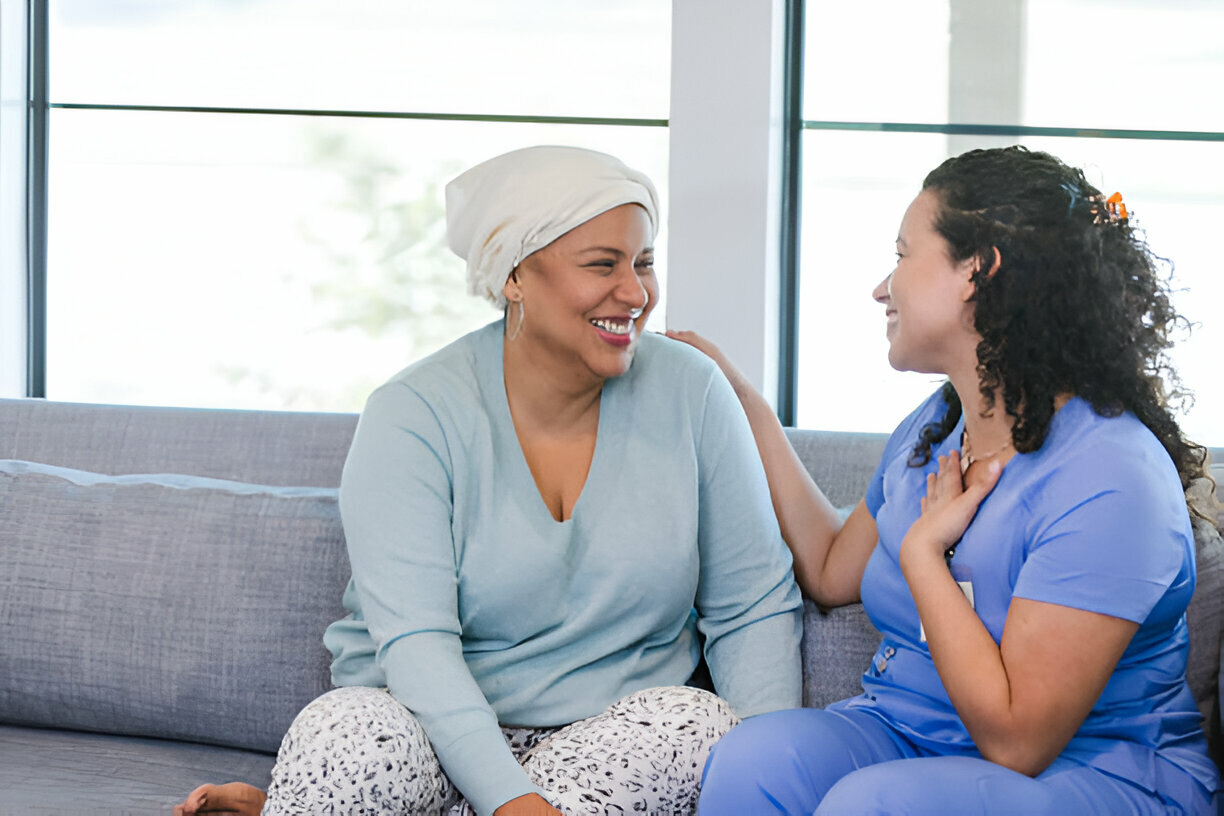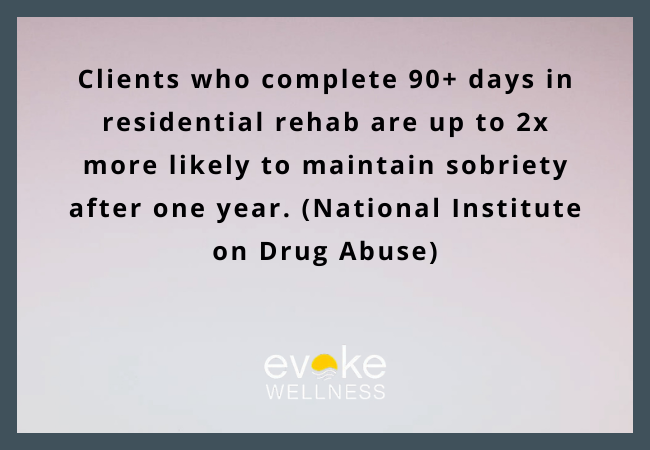When people think of addiction recovery, they often picture clinical environments, regimented therapy schedules, and distant healthcare providers. But the truth is far more inspiring. At Evoke Wellness at Cohasset, we’ve witnessed hundreds of success stories that reveal how personalized, compassionate residential rehab can transform not just behaviors—but lives. The structure, community, and intensive therapeutic support offered in residential programs often provide the turning point individuals need to reclaim their futures.
That’s where residential rehab makes a powerful difference. At Evoke Wellness, our Residential Mental Health Treatment Program provides a safe, structured, and healing-centered environment for individuals navigating both substance use and mental health issues. Through 24/7 care, personalized therapy, and holistic support, we help people not just survive—but truly heal and thrive.
In this blog, we explore how residential rehab empowers individuals to overcome addiction and mental health challenges, offering real hope for long-term recovery.
This article explores what makes residential rehab so effective by sharing stories of people who overcame seemingly insurmountable odds. These real-life journeys are powerful examples of how healing begins when people feel safe, supported, and understood. And most importantly, they show that recovery isn’t just possible—it’s sustainable.
The Role of Structure and Safety
For many, the first days of rehab are filled with fear and uncertainty. There’s the fear of withdrawal, the discomfort of change, and often deep shame that has built up over months or years of substance use. A residential setting provides a controlled, stable environment where clients can begin to detox and recover without outside distractions or triggers.
The structured nature of a Residential Treatment Program in Massachusetts gives individuals a framework they can rely on. Set schedules, regular therapy sessions, wellness activities, and peer support create a rhythm that restores a sense of normalcy. Clients often describe their first days in residential rehab as the first time they’ve felt “held” or “safe” in years.
This sense of safety is foundational to healing. It opens the door for vulnerability, honesty, and reflection—all essential components of long-term recovery.
Breaking the Isolation: Real Human Connection
Addiction often thrives in isolation. Many people who arrive at treatment have been living in emotional—and sometimes physical—isolation for months or years. Residential rehab changes that by creating a therapeutic community.
Group therapy, peer activities, shared meals, and common goals all help clients reconnect with others. For people who have grown accustomed to shame and secrecy, this can be a radically healing experience.
Connection is at the heart of recovery. During rehab, clients often bond deeply with peers who share similar experiences. These bonds can lead to lifelong friendships, mentorships, and accountability partnerships that help sustain sobriety long after treatment ends.
One woman, Emily, shared that when she came to rehab, she had no intention of opening up to anyone. But by her third week, the support she received from others in the program gave her the strength to talk about her trauma for the first time. That openness marked a major breakthrough in her recovery journey and helped her begin to rebuild trust—not only in others but in herself.
A Whole-Person Approach to Healing
Addiction doesn’t occur in a vacuum. It’s often tied to mental health disorders, unresolved trauma, chronic stress, and negative thought patterns. That’s why the best recovery programs address the person as a whole—not just their substance use.
Our clients benefit from the integration of medical care, mental health support, and evidence-based therapeutic approaches. These include group sessions, family involvement, and individualized treatment planning that targets the root causes of addiction.
One man, Marcus, had been in and out of multiple Addiction Treatment Programs in Massachusetts before he came to Evoke Wellness at Cohasset. What made this experience different for him was the individualized care plan. For the first time, he felt like someone understood his personal history. He wasn’t treated like a statistic, but as a man with real needs, grief, and potential.
Marcus thrived in the program. He engaged in therapy, reconnected with his family, and started setting goals for his future. Today, he’s employed full-time and volunteers at a local recovery community center.
Mental Health and Dual Diagnosis: A Missing Piece
A significant number of people struggling with addiction also live with undiagnosed or untreated mental health disorders. This is where dual diagnosis treatment becomes crucial. When mental health conditions are left unaddressed, the likelihood of relapse increases dramatically.
Evoke Wellness at Cohasset is proud to offer specialized care that targets this intersection. By providing Dual Diagnosis Treatment in Massachusetts, clients are evaluated and treated for co-occurring conditions like anxiety, depression, PTSD, and bipolar disorder.
Clients like Jasmine, who suffered from untreated bipolar disorder for years, found relief not only from addiction but from emotional instability that had ruled her life. With proper diagnosis and medication management paired with therapy, she found clarity and hope for the first time in decades. That breakthrough wouldn’t have happened in a program that focused solely on addiction without addressing her mental health needs.
Real Progress Through Intensive Therapy
Therapeutic interventions are central to the healing process in residential rehab. At Evoke Wellness at Cohasset, we use a variety of evidence-based therapies to help clients process their emotions, reframe their thinking, and build coping strategies for long-term success.
Some clients, like Jonah, respond best to cognitive restructuring. Through his participation in Cognitive-Behavioral Therapy in Massachusetts, Jonah learned how distorted thinking patterns fed his addiction. By learning to identify and replace these patterns, he began to shift his mindset entirely.
Others, like Lila, benefit from deeper emotional processing through Dialectical Behavior Therapy in Massachusetts. For Lila, who struggled with borderline personality traits and emotional regulation, DBT was life-changing. She learned distress tolerance skills and emotional regulation strategies that helped her avoid relapse during difficult moments.
Both forms of therapy gave these individuals a toolkit for long-term stability. But more importantly, they fostered self-awareness and self-compassion—two of the most powerful tools in recovery.
How Residential Rehab Helps with Mental Health Recovery
1. Integrated Dual Diagnosis Treatment
For individuals with depression, anxiety, trauma, or bipolar disorder, addiction can worsen symptoms—or vice versa. Our Residential Mental Health Treatment Program in Massachusetts ensures both issues are treated simultaneously.
Each client receives a personalized treatment plan with:
-
Psychiatric evaluation
-
Medication management
-
Individual and group therapy
-
Emotional regulation and coping skills
-
Ongoing monitoring and support
2. Safe Space for Emotional Healing
Living with mental illness often means dealing with shame, stigma, or emotional pain. Residential rehab offers a nonjudgmental, therapeutic environment where clients can:
-
Talk openly about their struggles
-
Process unresolved trauma
-
Rebuild confidence and self-worth
-
Learn how to manage symptoms effectively
3. Holistic Approaches for Mind-Body Wellness
We understand that recovery is not just mental—it’s physical and spiritual too. Our holistic programming includes:
-
Yoga and meditation
-
Creative expression (art, music)
-
Physical fitness and nutrition
-
Mindfulness-based stress reduction
These therapies enhance mood, reduce stress, and improve overall mental health in ways that complement traditional clinical treatment.
4. Community and Peer Support
Isolation worsens mental illness and addiction. Residential rehab fosters a sense of belonging and connection. Clients support each other through shared experiences, peer mentorship, and therapeutic groups.
This community connection helps reduce shame, build trust, and improve engagement in treatment.
Honoring the Individual: Tailored Treatment Paths
No two people experience addiction the same way. That’s why customized care is so important. At Evoke Wellness at Cohasset, treatment is never one-size-fits-all. Every client works with a dedicated treatment team to create a plan that reflects their goals, challenges, and strengths.
For some, the plan involves medical detox, trauma therapy, and family support. For others, it might include vocational coaching, medication-assisted treatment, or spiritual guidance. This flexibility allows us to honor the uniqueness of every person who walks through our doors.
One example is Tamika, a mother of two who had experienced domestic violence and turned to opioids to numb her pain. Her treatment plan included trauma-informed care, parenting support, and relapse prevention. She graduated from our program and now speaks publicly about her experience to help other women in recovery.
Preparing for Life After Treatment
One of the key features of a strong residential rehab program is planning for what comes next. Recovery doesn’t end at discharge—it’s a lifelong journey that requires continued effort and support.
That’s where Aftercare Services in Massachusetts become invaluable. These programs provide ongoing therapy, peer support, sober living options, and relapse prevention planning. They help bridge the gap between treatment and independent living, offering the structure and accountability people need during the early stages of reentry.
Clients who engage in aftercare are more likely to stay sober, avoid relapse, and continue progressing toward their personal goals. Our team works closely with each individual to ensure they have a plan and community to rely on after leaving our care.
Why Choose Evoke Wellness Cohasset?
At Evoke Wellness at Cohasset, we’re not just a treatment center—we’re a sanctuary for healing and renewal. Our Intensive Inpatient Program in Massachusetts offers the clinical excellence and compassionate care needed to support real, lasting recovery. With a team of experienced professionals, personalized treatment plans, and a warm, welcoming environment, we empower individuals to rediscover themselves, reconnect with others, and reclaim their lives.
we are a healing community. We offer:
-
Expert-led medical detox and psychiatric care
-
Trauma-informed, evidence-based therapies
-
24/7 supervision and support
-
Personalized care plans for addiction and mental health
-
Holistic services that treat mind, body, and spirit
-
Seamless transitions to step-down care (PHP, IOP, outpatient)
Conclusion
The road to recovery is never easy, but it’s absolutely possible with the right support. At Evoke Wellness at Cohasset, we’ve had the honor of witnessing profound transformations in the lives of our clients—proof that addiction doesn’t have to define anyone’s future. With a commitment to holistic healing, individualized care, and long-term support, we’re here to walk with you every step of the way.
If you or someone you love is ready to begin the journey toward recovery, we’re just a phone call away. Reach out to us today at 866.931.6429 to learn more about how we can help.
Frequently Asked Questions (FAQs)
What makes residential rehab different from outpatient treatment?
Residential rehab provides 24/7 support in a structured, live-in environment. This immersive care helps individuals focus entirely on recovery without outside distractions or triggers.
Who can benefit from residential rehab at Evoke Wellness at Cohasset?
People struggling with addiction, mental health disorders, or both (dual diagnosis) can benefit from the comprehensive, individualized care provided in residential rehab.
How long does a typical residential rehab program last?
Program lengths vary based on individual needs but typically range from 30 to 90 days. Longer stays may be recommended for complex cases or dual diagnosis treatment.
Is therapy included in residential rehab programs?
Yes. Residential rehab includes daily therapeutic services such as individual therapy, group counseling, cognitive-behavioral therapy (CBT), and dialectical behavior therapy (DBT).
What happens after I complete a residential rehab program?
Aftercare planning is an essential part of rehab. Evoke Wellness at Cohasset connects clients with aftercare services to help them maintain sobriety and build a healthy, independent life.





